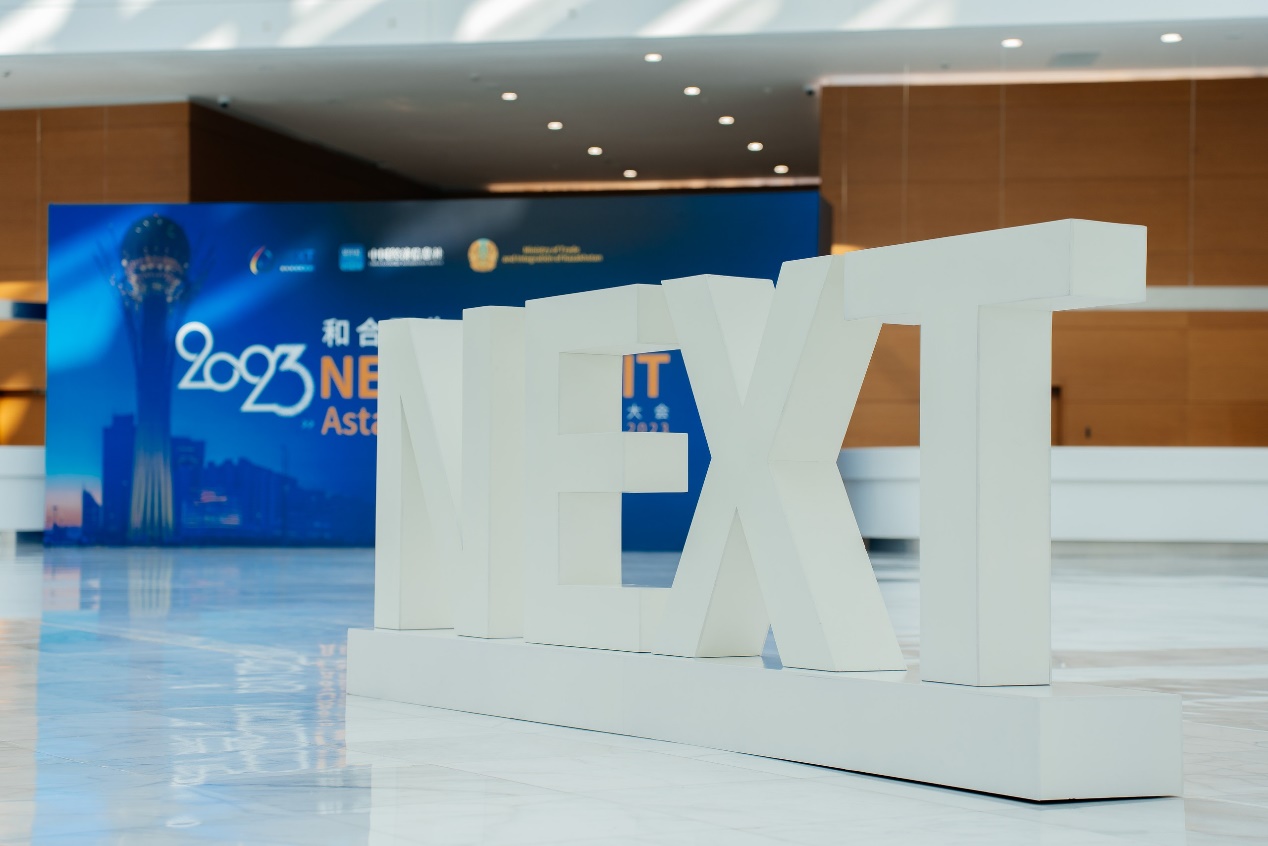NEXT Summit (Astana 2023): Unlocking New Value in ESG Development
ESG stands for Environmental, Social, and Governance. It is an investment philosophy and corporate evaluation framework that emphasizes environmental stewardship, social responsibility, and governance performance over traditional financial metrics.
From the perspective of the United Nations Sustainable Development Goals (SDGs), infrastructure investment decisions are inherently linked to most SDGs—especially SDG 3 (Good Health and Well-being), SDG 6 (Clean Water and Sanitation), SDG 7 (Affordable and Clean Energy), SDG 9 (Industry, Innovation and Infrastructure), and SDG 11 (Sustainable Cities and Communities).
However, the ESG field continues to face challenges such as limited financing channels, inconsistent standards, insufficient corporate ESG management capabilities, and weak collaboration across sectors. These issues call for the active participation of stakeholders worldwide to find collaborative and sustainable solutions.
On August 21, during the “ESG Development Trends” Sub-Forum at NEXT Summit (Astana 2023), industry leaders shared their insights and best practices. Key speakers included Mr. Fang Lianjun, General Manager of China Civil Engineering Construction Corporation (CCECC) Kazakhstan; Ms. Li Xiaochen, Partner and Indirect Tax Leader at Deloitte China; and Mr. Chew Chang Guan, CEO of Sarawak Trade and Tourism Company. The forum was moderated by Mr. Fan Xiaobao, Vice President of the Belt and Road Greater Bay Area Alliance, Chairman of Shenzhen Xiangweibao Industrial Co., Ltd., and Senior Advisor to the Executive Committee of the NEXT Federation.
Understanding ESG’s Three Core Pillars: Environment, Society, and Governance
As global infrastructure gradually recovers from the COVID-19 pandemic, the focus has increasingly shifted to sustainability. Guided by the UN’s 2030 Agenda for Sustainable Development, the international infrastructure community is embracing the concept of “sustainable infrastructure” in both investment and construction. A UNEP report titled International Good Practice Principles for Sustainable Infrastructure emphasizes the importance of sustainability in combating climate change, enhancing public services, and driving economic recovery.
At the forum, Mr. Fang Lianjun delivered a keynote speech titled “Co-Creating Our Shared Future: ESG in Kazakhstan from a Community Perspective.”
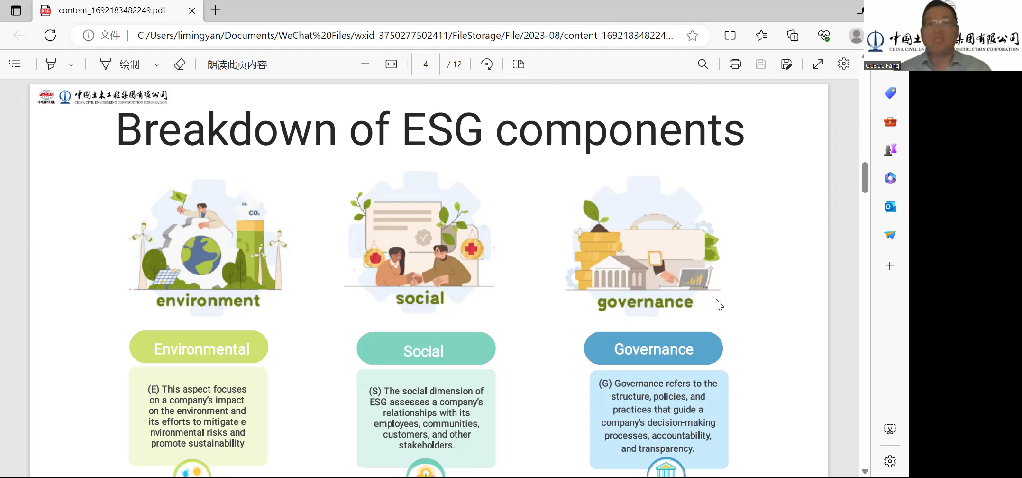
He elaborated on the three pillars of ESG:
- Environment: Including climate change mitigation, energy consumption and renewable energy usage, pollution control and waste management, water conservation, and sustainable supply chain practices. These are all vital to Kazakhstan’s sustainable development.
- Society: Fang emphasized the importance of labor rights and working conditions, diversity, equity, and inclusion, employee health and safety, community engagement and philanthropy, human rights, supply chain labor practices, and product safety and quality. Strong social practices help enhance corporate reputation and attract top talent.
- Governance: He highlighted the need for strong governance, including board composition and independence, executive compensation and incentives, shareholder rights and participation, anti-corruption practices, risk management, and financial transparency. A sound governance structure is the foundation for long-term business sustainability.
Fang called on Kazakhstani enterprises to adopt a community-centered ESG strategy and shared practical suggestions—such as encouraging employees to participate in community environmental programs, recycling office materials, tree planting, and respecting local cultures. He concluded that ESG is not just a corporate responsibility, but a pathway to a better future for humanity.
High-Quality Development Under ESG: Strategies for Enterprises
Ms. Li Xiaochen from Deloitte China presented on “Leading the Future: Achieving High-Quality Growth in the ESG Era.” She underscored the growing importance of sustainable development.
Citing the World Economic Forum, she noted that six of the top ten global risks over the next decade are environmental, including four that are purely environmental. With global temperatures likely to exceed the Paris Agreement’s 1.5°C target, environmental risks are drawing global concern.
ESG is now viewed as a critical tool and catalyst in advancing the SDGs. It not only emphasizes financial performance but also addresses environmental, social, and governance impacts, offering metrics and pathways to measure and track sustainability progress.
Li emphasized that enterprises must treat ESG as both a risk and an opportunity. With stock exchanges tightening ESG disclosure requirements, companies are under pressure to act. She introduced Deloitte’s “Three-Step Approach” to integrating ESG, and explained how ESG can help transform risk into opportunity, driving sustainable business growth.
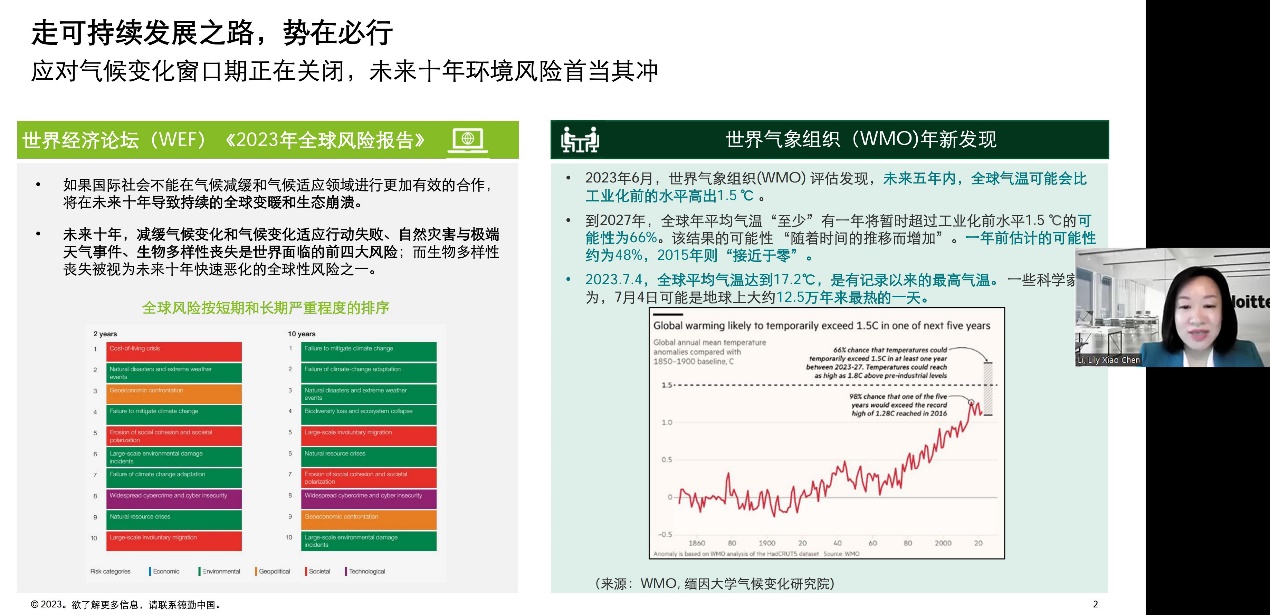
Trade and Investment Opportunities in Sarawak
Mr. Chew Chang Guan, CEO of Sarawak Trade and Tourism Company, highlighted trade and investment opportunities in Sarawak—a state in Malaysian Borneo rich in natural resources and diverse cultures.
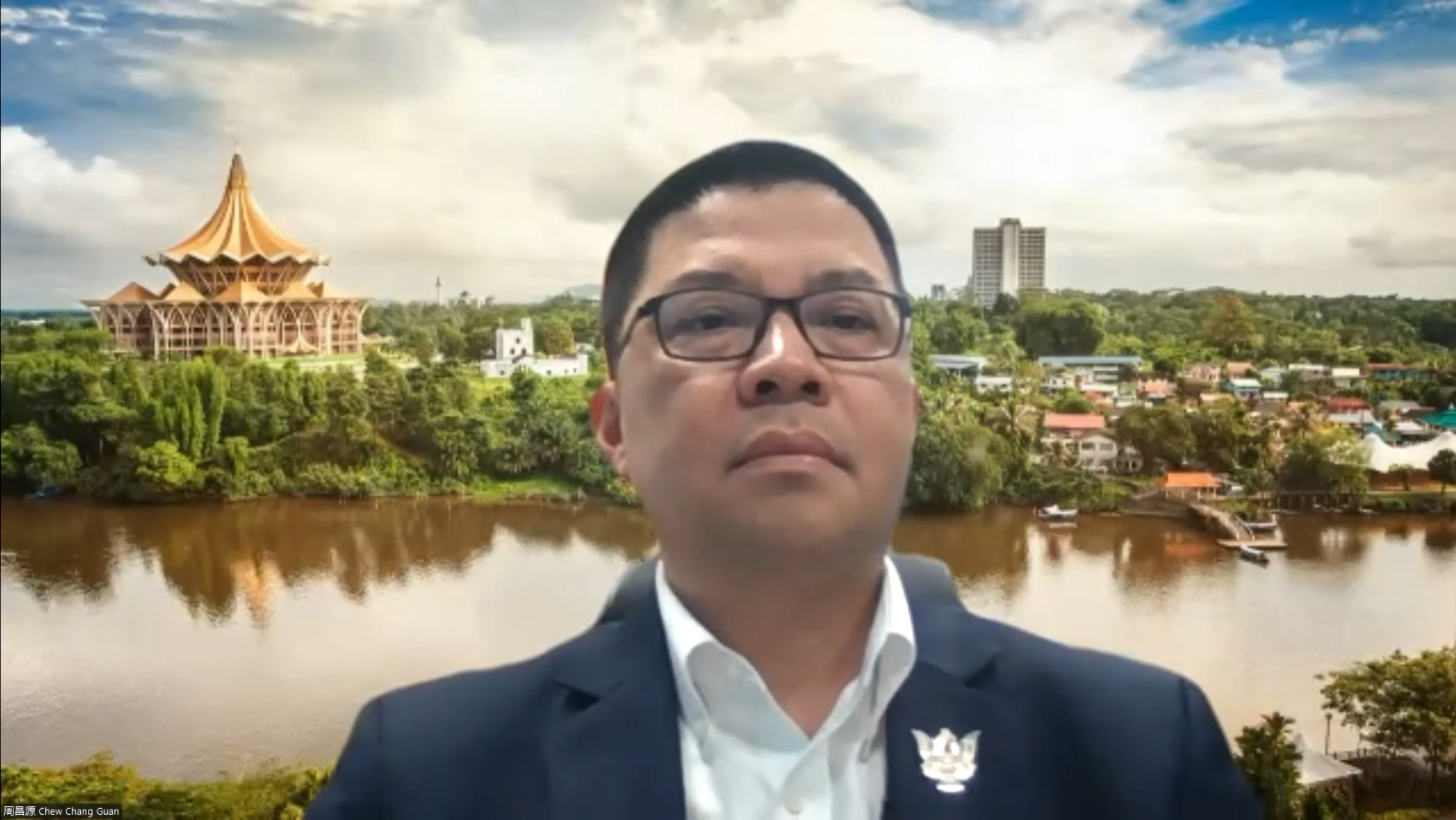
Chew noted that Sarawak’s exports have grown steadily, reaching USD 152.6 billion in 2022, with a trade surplus of USD 88.1 billion. He outlined the Sarawak government’s development strategies, focusing on digital economy, green economy, and sustainable energy as key growth areas toward achieving innovation and sustainability by 2030.
He also discussed Sarawak’s strengths in tourism, agriculture, and high-tech industries, as well as its leadership in clean energy investments. These sectors present exciting new opportunities for global investors.
Co-hosted by the NEXT Federation, China Economic Information Service (Xinhua News Agency), and the Ministry of Trade and Integration of Kazakhstan, the 7th NEXT Summit (Astana 2023) was held under the theme “Unite to Create.” The summit aims to strengthen global confidence in innovation, cooperation, and sustainable development, and to identify strategic opportunities and international project partnerships.
By providing a high-level international platform that brings together talent, knowledge, technology, and capital, the Summit facilitates the expansion of global cooperation networks and enhances the value and impact of public-private international collaboration.
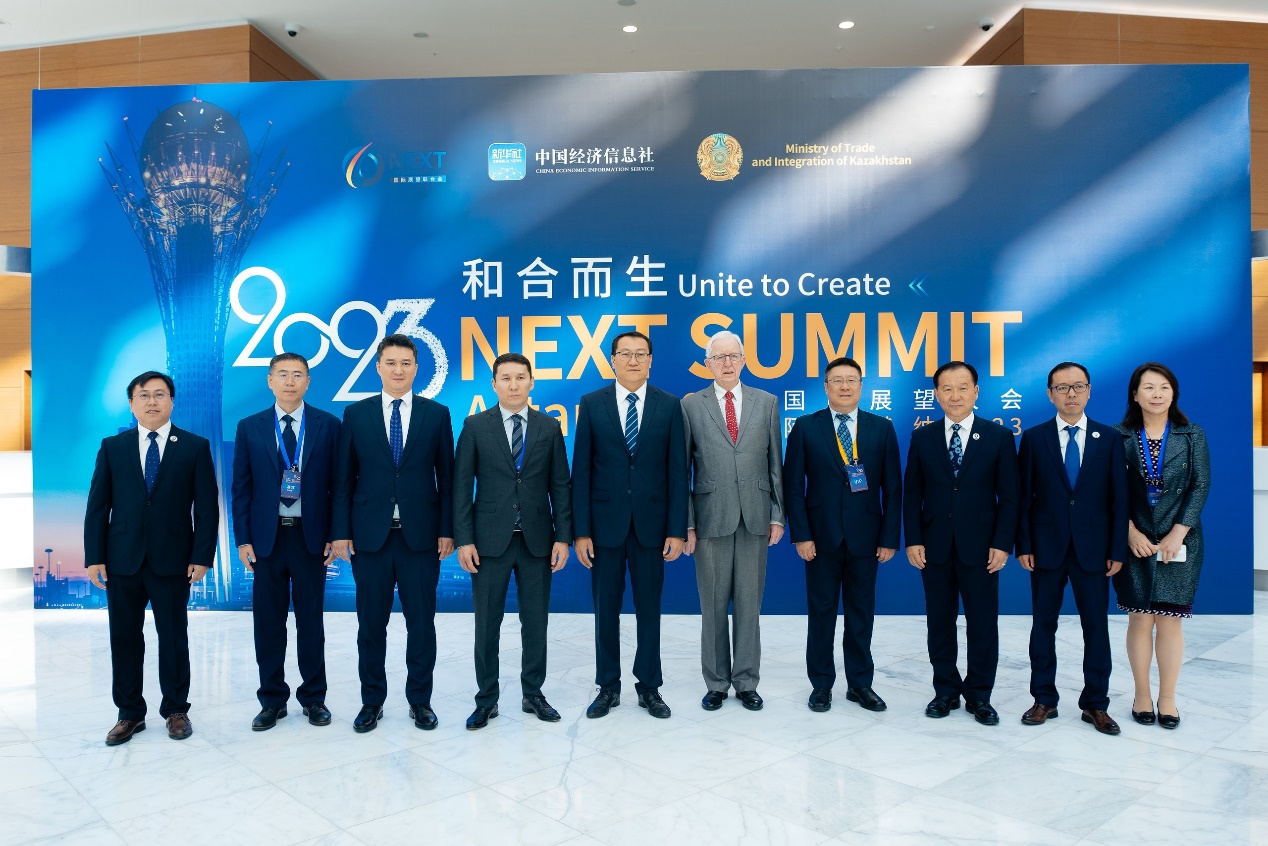
The NEXT Summit has become a well-recognized brand in global dialogue and partnership. Following the GMABC model—integrating resources from Government, Media, Academia, Business, and Community—the Summit serves as a vital bridge for practical cooperation in policy dialogue, project promotion, technology exchange, talent engagement, and international communication.
For more information, please visit the official website: www.nextsummit.org
